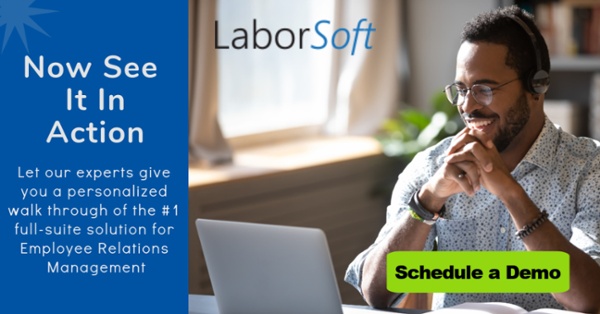HR Expectations for a Social Distancing/COVID-19 Workplace
Read Time 6 mins | Jul 15, 2020 | Written by: Frankie Kourtis

On April 17th, the EEOC posted informal guidance to businesses on the return-to-work phase of the COVID-19 pandemic. While many things still hang in the balance based on the recent resurgence of COVID cases in many states throughout the country, the White House is already pushing ahead with the reopening of the economy and proposals for the reopening of schools nationwide come fall. More than ever, HR departments and employers will bear the burden of how to translate the guidelines into finite transitional policies for their own employees and how to assure them that their safety and well-being is at the forefront of their plans.
On top of that, it was a long spring for working parents of trying to juggle work and their roles as primary caregivers and fledgling homeschool teachers. While the government stepped in to ease the strain on people’s psyches and pockets with the increase of unemployment benefits and FMLA leaves with the CARES Act/stimulus bill, uneasiness is taking shape in the minds of employees AND employers now regarding the extension of these types of benefits and leniency when thinking about a return to both work and school. In fact, employers and HR are left with the extra task of laying the groundwork for shifting corporate policies when the revised CDC and EEOC guidelines come out, since they will dictate the framework for reopening their offices. While workplace policies should remain flexible and fair, they still need to be reasonable so that companies can soldier on and remain profitable.
Accommodations: Recommended vs. Reasonable
In terms of “reasonableness”, the EEOC outlined that once the government-imposed restrictions/quarantines are lifted, employers may provide accommodations for those who need extra time and/or resources to continue to work from home if they have a preexisting condition or are at high risk due to the pandemic, which would classify them under the category of “disability”, albeit temporarily. So, those employees who have long-term and/or short-term disability coverage offered by their employer will be guaranteed their jobs and their income during this tenuous time on a trial basis, with an end date in mind. All that these employees would have to provide is medical documentation to their HR department.
However, it can be expected that there will be a deluge of accommodations that are requested by returning employees when offices reopen. This, as well as other restrictions and/or residual effects of the pandemic, will likely tax a company’s resources (and HR department’s time) or hamper its ability to provide reasonable accommodations. In a time when resources are not as plentiful, shipping options impacted, and supply chain offerings limited and deeply affected, requested accommodations may not be achievable. The EEOC guidance acknowledges “. . . that the unique economic pressures on employers due to the pandemic may mean that an accommodation that previously would not have posed an undue hardship may pose one now.” For example, decreases in revenue will put undue stress on discretionary income resulting in an employer’s inability to provide “reasonable accommodations”. Lower-cost or alternative options may exist, however managers and HR departments may find themselves in the position of having to deny certain requests due to limited resources and/or channels of procurement. The guidelines also state: “The mere existence of pandemic conditions does not override the general rule that employers and employees engage in an interactive process to determine reasonable accommodations for disabilities.”
The EEOC also acknowledges that fears and anxieties will likely run high and could become a roadblock to a seamless transition in getting back on-site, so it is important for HR personnel to be ready to field a lot of questions or special requests. So, it is important to be armed with definitive guidance and implement directives by the CDC and other state-level public health agencies, such as screening measures including temperature testing, symptom screening, and self-reporting/disclosure of medical conditions. However, it is critical that managers and HR remember that much of this type of information is confidential, and that infringing on an employee’s rights by labeling or screening them (especially if they opt out) could be grounds for an employee lawsuit.
Also, while the population has succumbed to the reality of having to wear protective gear including masks and gloves in public, it will still likely be a transition for employees to remember to wear them once they are in the office. However, it will be very challenging for HR managers to constantly police those who do not adhere to the company’s requirements of wearing protective gear or social distancing, nor should it really be their part of their jobs. So, it will really involve entering a social compact of sorts that employees stay or sit a certain amount of feet apart and wear personal protective gear in order to protect themselves or coworkers in close proximity, and also gently remind one another if they lapse or forget. In this climate, politeness and good etiquette practices will go a long way. But, there will always be exceptions that exist that preclude someone from wearing masks and other protective apparel, such as latex allergies, those with certain physical disabilities like deaf employees who rely on lip reading (where a mask would prevent them from doing so), and even religious observances or customs. So, it continues to be important to consider all of this and have alternative options in your back pocket for when the special requests come up.
Be Prepared to Be In-Person by Being Proactive
It is most important to be ready for any and all scenarios when employees return to work. Having a back-up plan that you can present when questions come up will not only allay employees’ concerns, but will also show that you have had the foresight and care to research options so that they feel safe, which makes them able and willing to perform their jobs. But, do not be naïve either; there may be palpable tension and paranoia between coworkers if they suspect that those around them may be sick. The most important safeguard in this case is vigilance with regular screenings, reminders of precautions, and open communication channels so that employees feel secure in sharing information without being judged in a harsh way. Take note that there could be an uptick in claims of harassment and/or discrimination, so be ready to deal with such matters if (or when) they rear their head.
LaborSoft’s innovative technology is one of many integral solutions that keep your business, in business. Our employee relations analytics, case management workflows, and our central repository of documentation streamlines case management to mitigate risk of operational bottlenecks, costly lawsuits, and legal ramifications stemming from HR issues and complaints. This sensitive data requires that maximum security protocols are in place and that your information is protected at all times.
-------------------------------------------------------------------
Contact us for a customized demonstration and learn how LaborSoft can help you improve communications, build a more collaborative, safe, and supportive workplace, while reducing the likelihood of costly litigation.


